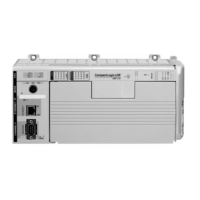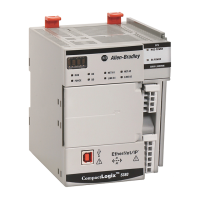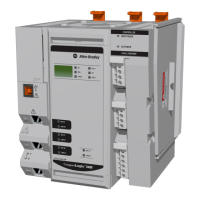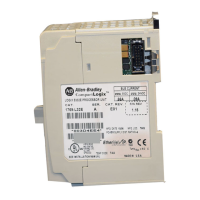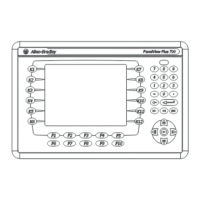Rockwell Automation Publication 1756-PM004D-EN-P - September 2012 55
Organizing Tags Chapter 2
Tag Documentation
The table outlines the four types of tags that can be created and the descriptions
that you can document for each one.
Project Documentation
With version 17 and later of the application, you have the option to display
project documentation variables for any supported localized language, such as:
• Component descriptions in tags, routines, programs, equipment phases,
user-defined data types, and Add-On Instructions
• Engineering units and state identifiers added to tags, user-defined data
types, or Add-On Instructions
• Tren ds
• Controllers
• Alarm messages (in configuration of ALARM_ANALOG and
ALARM_DIGITAL tags)
• Ta s ks
• Property descriptions for a module in the Controller Organizer
• Rung comments, Sequential Function Chart text boxes, and Function
Block Diagram text boxes
You can store project documentation for multiple languages in a single project file
rather than in language-specific project files. You define all the localized
languages that the project will support and set the current, default, and optional
custom localized language. The application uses the default language if the
current language's content is blank for a particular component of the project.
However, you can use a custom language to tailor documentation to a specific
type of project file user.
The Logix Designer application automatically assigns what are called pass-through
descriptions of the tags you have created. You may or may not want to use these
descriptions.
Tag Description
Base When you create a tag without specifying a tag type, the Logix Designer application
automatically assigns your tag a default type of Base. Since base tags enable you to
create your own internal data storage, you can document in your tag description the
nature of the data being stored.
Alias By creating an Alias tag, you can assign your own name to an existing tag, structure tag
member, or bit. In the description of your Alias tag, you can describe the tag that your
alias tag references.
Produced A Produced tag refers to a tag that is consumed by another controller. In the description
of your Produced tag, you can describe the remote controllers that you want to make
your Produced tag available through controller-to-controller messaging.
Consumed A Consumed tag refers to a tag that is produced by another controller and whose data
you want to use in your controller. In the description of your Consumed tag, you can
describe how you want to use a produced tag’s data or the data-producing controller.

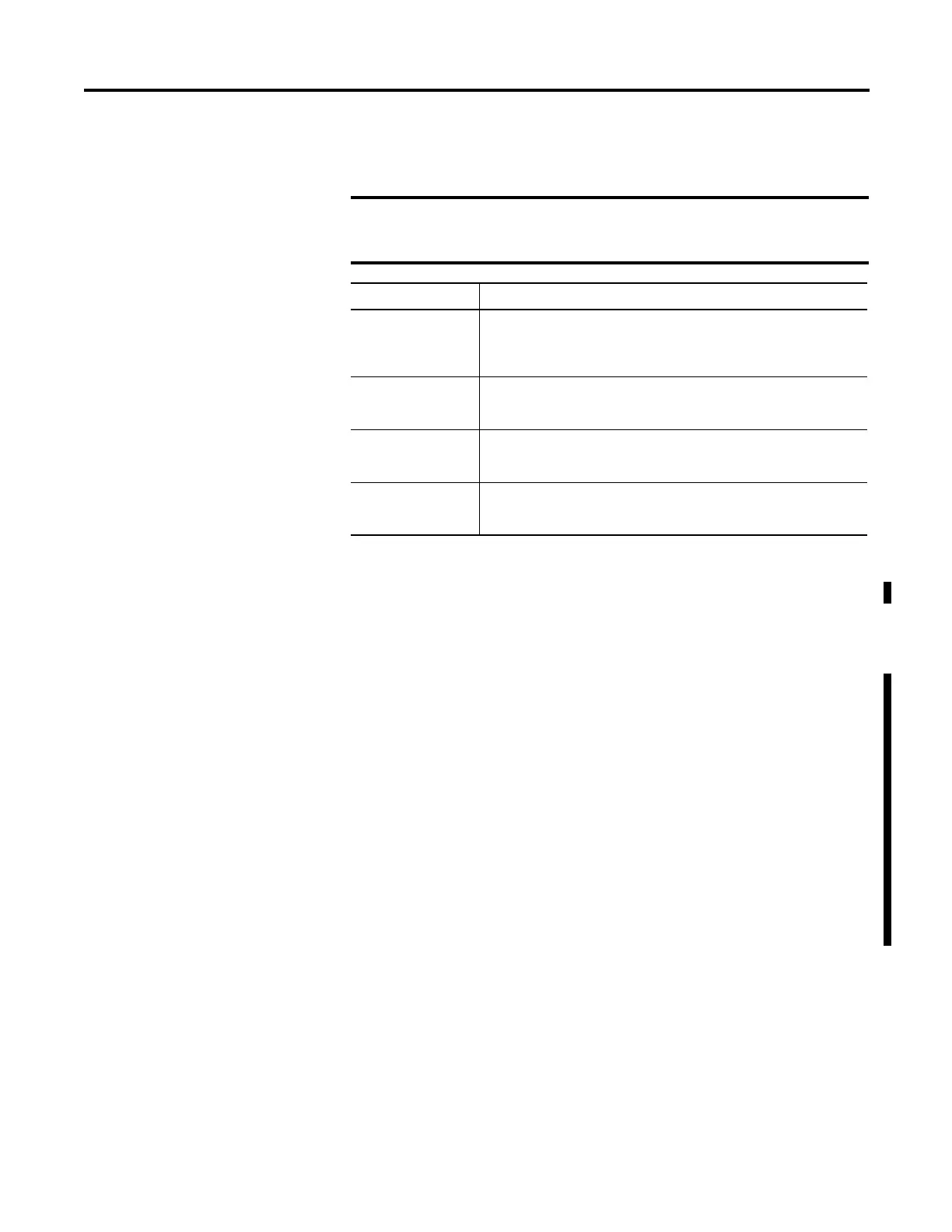